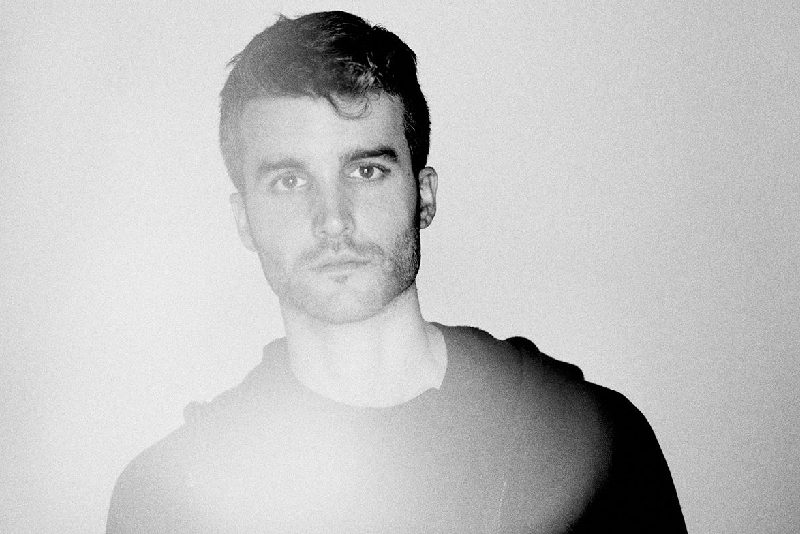
Nico Casal + Oystercatcher
Nico Casal has an Oscar and getting to touch the golden award is likely to be one of the most memorable moments of his life. The Oscar is not exclusively his, but it could not have been achieved without his contribution: in 2015, after only three years trying to make a living as a composer in London he wrote the music for Stutterer, a short film directed by Benjamin Cleary. The movie had very few words, hastily mispronounced by a stuttering main character, so the music fluidly filled a great part of the scenes, therefore Nico’s piano was responsible for powerfully transmitting the whole concept as well as highlighting the emotions, as good film soundtracks do. Shutterer was a short, sheer piece and it deserved the best. Winning an Oscar when working in the film industry, is the best.
Nico Casal has collaborated with aspiring young directors in his teenage years, when he was a student at the academy of music in Galicia and had a penchant for composing, and his pieces filled the voids of many amateur short films. He was a magician’s apprentice with a defined style that fitted perfectly into motion pictures; his music sprouted from different traditions whose main focus was to generate an instant moving drive – from the late XIX century light and embellished Impressionism, to the European minimalism linked to the ambient scene-, something that, already in the XXI century, leads you to mainly compose for films and dance companies rather than solemn auditorium premiers.
Film language has its own rules, different from those a composer has to apply, for example, if they write an opera, a symphony or a string quartet. There is an agreement -among many others that make contemporary original soundtracks interesting- to highlight the emotions and share the space limited by the frame as if it was an additional layer of the surrounding air, and that implies being subtle, delicate and trying not to overcomplicate things: something straight to the heart. That is Nico Casal’s language: a simple impressionism, lyrical and functional and straight to the point because there is no time to lose.
In piano literature there are different complexity levels. The 19th century, which was so torrential and passionate in its development, has always entailed some-to-great difficulty: the passions mix with complex constructions constituting the most difficult piano music that exists -the peak can only be reached once it is fully understood, were it possible to catch its mystery, Beethoven, Chopin and Liszt-. With the arrival of cinema, the feelings that are sought to be conveyed to the audience do not rely exclusively on the composer anymore and therefore the task of communicating the affections, either somber or uplifting, responds to a logical workload division, since pictures talk by themselves too, music stops having poetry’s ambition, metric and epicness and accommodates itself in a by no means negligible parfum status.
In the early XXI century, the minimalist school that developed between the sixties and the nineties, got in touch with pop’s and ambient’s languages. Frictions were not new but from then on tended to intensify due to different causes: on the one hand a well educated in subtle electronics audience emerged which demanded a broader texture palette, and a new generation of young musicians who loved Schubert and Scriabin equally but who had also listened to Michael Nyman and Arvo Pärt, and looked for a natural way of integrating such dissimilar yet emotionally close influences. Pärt’s “Fur Alina” became a key piece to a collective of composers obsessed with fragility: that ecstatic miniature proposed the transformation of the piano into an aerial and subtle body, every note was weightless, music had to fill silence with a corrupt version of silence itself.
Nico Casal is a new figure who follows in the footsteps of that school of contemporary European composition that, between the impressionist tradition, ambient, film music and pop, has managed to bring together, with patience and talent, a new audience for music of western tradition. Max Richter, Ólafur Arnalds, Anton Batagov or the much missed Jóhann Jóhannsson began to develop their music based on heterodox references, and not always related to the classical canon: the infinite sadness of Samuel Barber flows through them, the evanescence of Brian Eno, the steady balance between rhythm and melody by Michael Nyman, the sinking sensation of Gavin Bryars; music without mystery nor complex simultaneously, because its commitment to tonality may seem conservative, but it is done with a non-negotiable intention: to increase the power of communication. Music which filters into space and place like a cool summer breeze.
Nico Casal has, logically, overgrown cinema. Without abandoning it, because important projects are to come, he has also decided to create his own imaginary films, short films created from mental files and sparkles of memories like those of Alone, an album filled with miniatures for piano – subtly aided by synthesizer and strings – in which his clear style and enormous potential are summed up: progressions of chords radiating from the void, seeking a climax, but diluted in silence without being able to completely explode. The restless search for an emotional liberation -Alone seems to talk about the final breakup of a romantic relationship, it is the soundtrack of the end of a love that was once beautiful and unique and that has been stretched to its breaking point-and prefers to abort in time so that, in the memory, only the sensation of a blurred reality remains, of a blurred emotion. There’s a piece that sums it up perfectly in the title: It’s Fine, But it Hurts. When it seems that music only floats and goes away, turns out it has become deeply rooted and gotten under the skin. And then it hurts.
This is a seated show.
Audience: Seated







